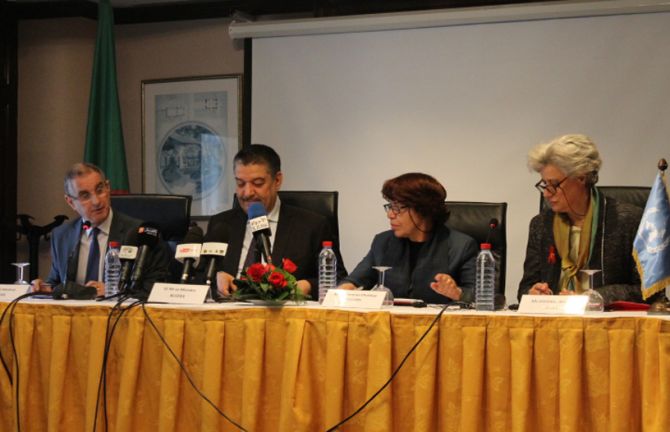

Update
Getting on the Fast-Track in the Middle East and North Africa
23 December 2015
23 December 2015 23 December 2015Governments, health experts and civil society activists have renewed their commitment to accelerate HIV testing and treatment programmes across the Middle East and North Africa as part of efforts to achieve the UNAIDS Fast-Track targets by 2020.
At a meeting hosted by the Government of Algeria and co-organized by UNAIDS and the World Health Organization (WHO), people living with HIV, national AIDS programme managers, representatives of civil society networks and the United Nations, technical partners and the media came together to assemble and reinforce the political leadership, technical capacities and resources to enable the rapid scale-up of HIV testing and treatment services.
The participants expressed their concern at the current low testing and treatment coverage in the Middle East and North Africa region. They stressed the need to mobilize additional resources and underlined that spending on the epidemic should be regarded as investment rather than expenditure. Discussions also highlighted the need to optimize rapid diagnostic technologies and to transition towards a test and treat model in line with the WHO’s new guidelines.
The meeting in Algiers ended with a regional declaration led by Algeria’s Minister of Health to guarantee a sustained commitment to the Fast-Track strategy ahead of the United Nations High Level Meeting on AIDS taking place in June 2016.
Quotes
“The choice to Fast-Track testing paves the way towards reaching the 90-90-90 targets and to ending AIDS by 2030.”
"Egypt has adopted the 90-90-90 targets in its recently launched national strategic plan, and Fast-Tracking testing comes as a priority to achieve these targets by 2020."
"If we test earlier we will save many lives and be on the way towards a generation without AIDS."
“Our region has a historic opportunity to be among the first to reach the 90-90-90 targets. To do so, we must close the testing and treatment gaps and leave no one behind.”



